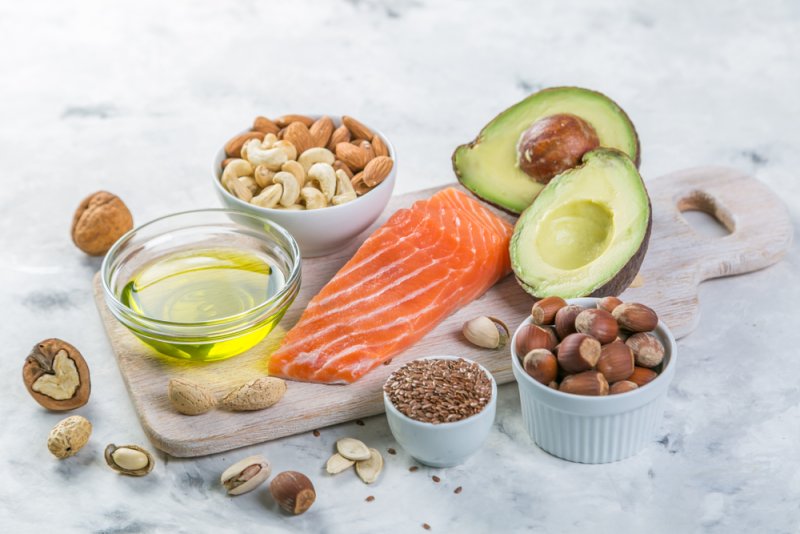The keto diet is a high-fat, low-carbohydrate diet that’s become popular in recent years. Some people even follow a vegan ketogenic diet, which limits animal products. The exact reason for this isn’t known, but it’s suspected that the keto diet’s very low carb intake may cause seizures by depriving the brain of glucose—a type of sugar that serves as its primary fuel source. Research shows that following a keto diet can improve cholesterol levels and reduce the risk of type 2 diabetes heart disease cancer
Table of Contents
The keto diet has become popular over the past several years
The keto diet has become popular over the past several years. It’s a low carb, high fat diet that can help people lose weight and improve their health. But it can also be dangerous to do without medical supervision.
When you eat a typical Western diet, your body uses glucose from carbohydrates for energy and stores excess glucose as glycogen in muscles and liver tissue. When you eat carbohydrate-rich foods like breads, pasta or sugary snacks or drinks—or even some fruits—your blood sugar level rises sharply (1). Your pancreas releases insulin to clear glucose out of your blood so that it doesn’t damage cells in your body (2). After clearing all this sugar from the blood stream, much of what remains is stored as fat on your body (3).
Some people even follow a vegan ketogenic diet
If you’re wondering whether or not the keto diet is dangerous, then you have to consider how healthy it is. The answer is that it depends on what you eat.
There are a few ways to follow a vegan ketogenic diet. One way is to eliminate all animal products from your diet while following the guidelines of a traditional keto plan. This means eating lots of vegetables and other whole foods, using starchy vegetables like potatoes as your main source of carbs, and avoiding things like grains and sugars (except for fruit).
The other way is to follow an ultra-low-carb diet where you get most of your calories from fat sources like avocados, nuts, seeds and oils (the foods on this list will vary depending on whether or not you’re also restricting protein). You’ll need this type of calorie count because there aren’t enough carbohydrates available in plant-based foods alone without including some kind of animal product—and even then it’s close!
While the exact reason for this isn’t known, it’s suspected that the keto diet’s very low carb intake may cause seizures by depriving the brain of glucose
While the exact reason for this isn’t known, it’s suspected that the keto diet’s very low carb intake may cause seizures by depriving the brain of glucose. Glucose is a type of sugar that is the brain’s primary source of energy. When you deprive your body of carbs, your blood sugar levels drop, which can lead to hypoglycemia (low blood sugar). Hypoglycemia can make you feel dizzy and lightheaded. It may also cause confusion, irritability and abnormal behavior in some people. In rare cases, someone with severe hypoglycemia could have a seizure or even suffer an injury from falling down or bumping into something while unconscious due to lack of consciousness from low blood sugar levels
Research shows that in addition to weight loss, following a keto diet can improve cholesterol levels and reduce the risk of type 2 diabetes, heart disease, and cancer
Now that you know the basics of how to follow a keto diet, let’s talk about the risks and benefits. While researchers have found that following this diet can be healthy for some people, it isn’t always safe. In fact, many doctors say there are too many unanswered questions about the long-term effects of cutting out most carbs.
- Research shows that in addition to weight loss, following a keto diet can improve cholesterol levels and reduce your risk of type 2 diabetes, heart disease and cancer.*
- But not all experts agree on these benefits. Some experts believe that while eating a high-fat diet may help you lose weight at first (because your body burns fat instead of sugar), over time it may increase your chances of developing certain diseases—like heart disease or stroke—or type 2 diabetes.*
As with any diet, it’s important to follow your doctor’s recommendations
If you have any health issues, allergies or pregnancy, it’s important to talk to your doctor before starting a Keto diet. Make sure that you’re not losing too much weight, as this can be dangerous for your health. If you are experiencing symptoms like dizziness, nausea or heart palpitations consider speaking with your doctor about your diet plan and whether or not it is safe for you to continue.
Many people who use the keto diet are able to consume fewer calories without feeling hungry
Many people who use the keto diet are able to consume fewer calories without feeling hungry. This is because the ketogenic diet is very low in carbohydrates, which are a key source of energy for the body.
When you eat a lot of carbs, your body converts them into glucose and stores the remaining unused portion as fat. However, when you cut out carbs completely, your body switches over to burning fat instead of sugar as its primary fuel source. That means that you won’t have a steady supply of energy throughout the day—but this isn’t necessarily bad news!
The ketogenic diet is considered one of the most successful treatments for epilepsy in children and adults
The ketogenic diet is a high-fat, low-carbohydrate diet. It’s often used to treat epilepsy in children and adults.
Here’s how it works: The body uses carbohydrates for energy, so when you cut out carbohydrates from your diet, your body has to find an alternative source of fuel. When you eat a lot of fat and not enough carbohydrates, ketones are produced by the liver from stored fat and used as energy instead of glucose (sugar). This change in fuel source lowers blood sugar levels and reduces seizure activity in about half of people with epilepsy who try the diet.
During a keto cycle, your body will burn through fat stores instead of its preferred source of energy — carbs
As you know, the keto diet is a low-carbohydrate diet that causes your body to use fat as its primary source of energy instead of glucose. The process of converting fat into energy is called ketosis. Keto diets can be very effective at helping you lose weight and improve your overall health, but they’re not without their risks — especially if you don’t do them properly.
- Achieving ketosis isn’t always easy; some people may need supplements or other tools in order to achieve this state safely and effectively. To get an idea about how to start out on a well-rounded approach for yourself, look through these tips from experts like Dr. Mark Hyman MD and Dr. Jason Fung MD:
- Be prepared before you start: Make sure that all necessary supplies (like blood pressure monitors) are available to monitor your progress throughout the first few weeks until everything stabilizes; also make sure that there’s someone nearby who will help keep things safe while making sure their loved ones know what they’re doing!
Unlike other diets, these types of drastic changes have led to speculation about safety concerns
There are some concerns that the keto diet may pose certain health risks. For example, you might get tired of eating high-fat foods or feel like you’re not getting enough nutrients.
However, there’s no scientific evidence that proves these claims are true. In fact, there’s nothing to suggest that this diet is dangerous at all! The only thing that’s clear is that people who want to try it should take extra care when starting out so they don’t experience any unwanted side effects.
Conclusion
The ketogenic diet is a very restrictive diet that can be difficult to stick with in the long term, especially for people who don’t want to eat meat. The high-fat nature of this diet may also cause adverse side effects such as nausea, diarrhea or constipation. If you’re considering following a keto diet, consult your doctor first.





